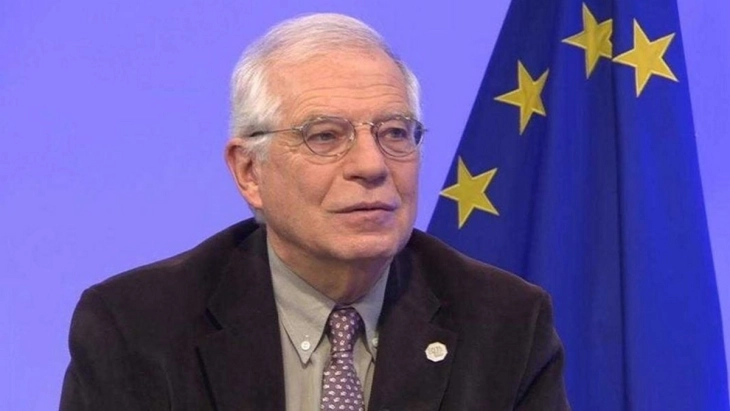Top EU diplomat wants to set up long-term Ukraine military funding
- Top EU diplomat Joseph Borrell pitched a €20 billion ($22 billion) fund to support Ukraine's long-term military needs to European Union foreign ministers in Brussels on Thursday.
- Post By Nevenka Nikolik
- 19:37, 20 July, 2023

Brussels, 20 July 2023 (dpa/MIA) - Top EU diplomat Joseph Borrell pitched a €20 billion ($22 billion) fund to support Ukraine's long-term military needs to European Union foreign ministers in Brussels on Thursday.
The dedicated fund is to provide Ukraine with "up to €5 billion a year for the next four years," Borrell said in a press conference, without providing further details.
Earlier he said the aim was to move Ukraine's military support away from a "month by month" basis to a more permanent approach. EU member states are to now consider the proposal.
The plan presented to EU foreign ministers, obtained by dpa, would make €5 billion available for arms and training programmes for the Ukrainian armed forces for the period 2024-2027.
German daily Frankfurter Allgemeine Zeitung and US outlet Politico also reported on the plan. So far the European Union has sent €5.6 billion in military aid to Ukraine in separate tranches.
The funding comes from a budget mechanism, separate to the EU budget, called the European Peace Facility (EPF) that reimburses EU member states for supplying arms to Ukraine and other non-EU countries.
EU member states have also provided arms to Ukraine through bilateral efforts independent of the bloc. Germany announced €700 million in military aid for Ukraine at a NATO leaders summit in Vilnius this month.
EU treaties prevent the bloc from using EU budget funds for military projects.
EU foreign ministers also considered what long-term security commitments the bloc can offer Ukraine after the Group of Seven (G7) industrialized nations agreed on a framework for pledges of support.
One idea proposed in Borrell's plans is a significant expansion of EU military training for Ukraine's armed forces and, circumstances allowing, relocating training missions from the EU to Ukraine.
EU foreign ministers also expanded sanctions that target Iran with a new legal regime over drones supplied to Russia used for attacks on Ukraine.
The sanctions prohibit the EU export to Iran of parts used in the production of drones, and freeze the assets and ban from travelling to the bloc, anyone involved in the Iranian drone programme.
Other EU sanctions for human rights breaches target officials involved in the mass repression of protests in Russia and the imprisonment of Kremlin critics, Vladimir Kara-Murza and Alexei Navalny.
Photo: archive







